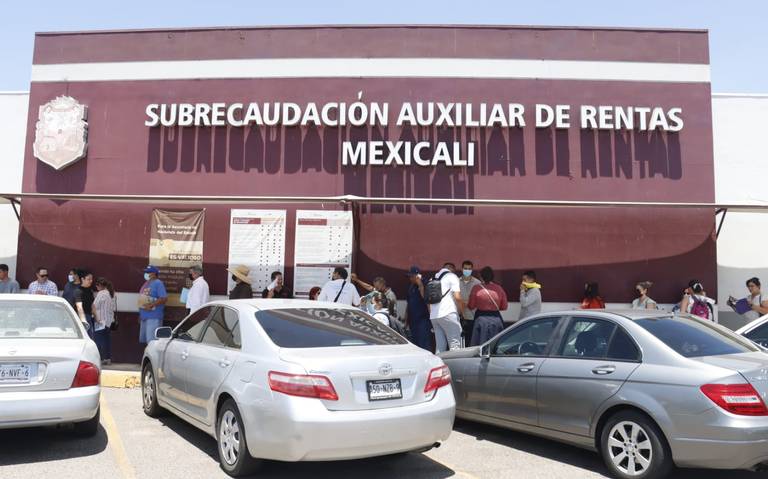Recaudación de Rentas Mexicali: Understanding Its Role and Services

In Mexicali, the administrative hub of the Mexican state of Baja California, the Recaudación de Rentas (Revenue Collection Office) stands as a critical entity responsible for various fiscal services and contributions. This institution plays a pivotal role in the collection, management, and allocation of taxes and revenues essential for the functioning of the state and its public services.
Understanding Recaudación de Rentas
The Recaudación de Rentas in Mexicali is a governmental body tasked with administering and collecting taxes, fees, and other fiscal obligations imposed by the local government. Its primary objective is to ensure compliance with tax regulations while facilitating ease and efficiency in payments.
Services Offered by Recaudación de Rentas
- Vehicle Registration and Licensing: One of the key services provided by Recaudación de Rentas is the registration and licensing of vehicles. This involves issuing license plates, collecting registration fees, and ensuring vehicles comply with legal requirements.
- Property Taxes: Property owners in Mexicali rely on this institution to pay property taxes. Recaudación de Rentas ensures the timely collection of these taxes, contributing to municipal development projects and services.
- Business Taxes and Permits: For businesses operating in Mexicali, Recaudación de Rentas oversees the collection of business-related taxes and the issuance of necessary permits, fostering a conducive environment for commerce and entrepreneurship.
- Payment Processing for State Services: The office serves as a central point for processing various payments related to state services, such as driver’s license renewals, fines, and other administrative charges.
Simplifying Procedures for Taxpayers
Efforts have been made to streamline processes and modernize services offered by Recaudación de Rentas. Online platforms and digital payment methods have been introduced, easing the burden on taxpayers by providing convenient options for fulfilling their fiscal obligations.
Furthermore, the office frequently organizes informational campaigns and workshops aimed at educating the public about tax laws, deadlines, and the importance of compliance. These initiatives contribute to fostering a more transparent and informed relationship between taxpayers and the government.
Challenges and Future Initiatives
Despite its efforts, Recaudación de Rentas faces challenges common to tax collection agencies globally. These challenges include tax evasion, ensuring equitable tax distribution, and adapting to rapidly changing economic landscapes.
Looking ahead, the institution is actively exploring technological advancements to enhance its services further. Embracing automation, digitalization, and data analytics can potentially optimize tax collection processes, improve accuracy, and reduce the occurrence of tax fraud.
Conclusion
The Recaudación de Rentas in Mexicali serves as a vital pillar in sustaining the economic and social infrastructure of the region. By efficiently collecting taxes and ensuring compliance, it contributes to the development of public services and community welfare.
As Mexicali continues to evolve, the role of Recaudación de Rentas remains crucial. By embracing innovation, transparency, and education, this institution endeavors to create a more efficient and taxpayer-friendly environment, fostering a collaborative relationship between the government and its citizens.





